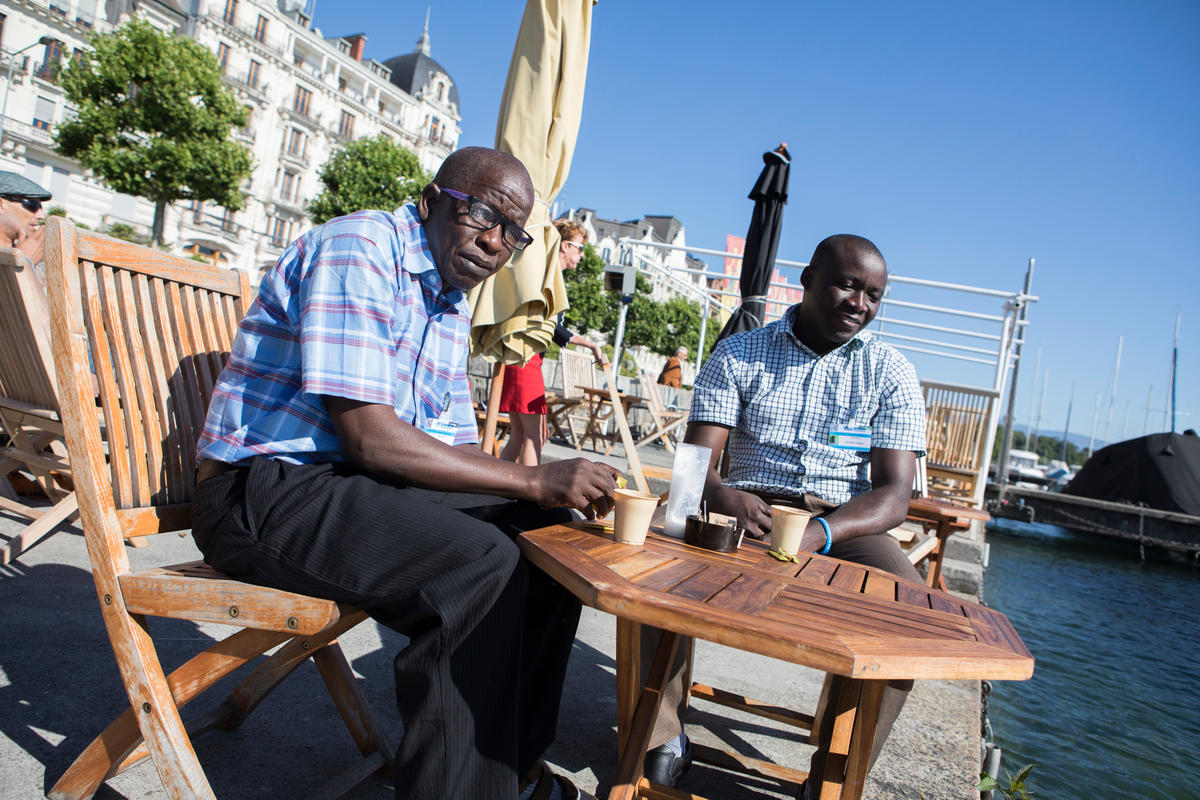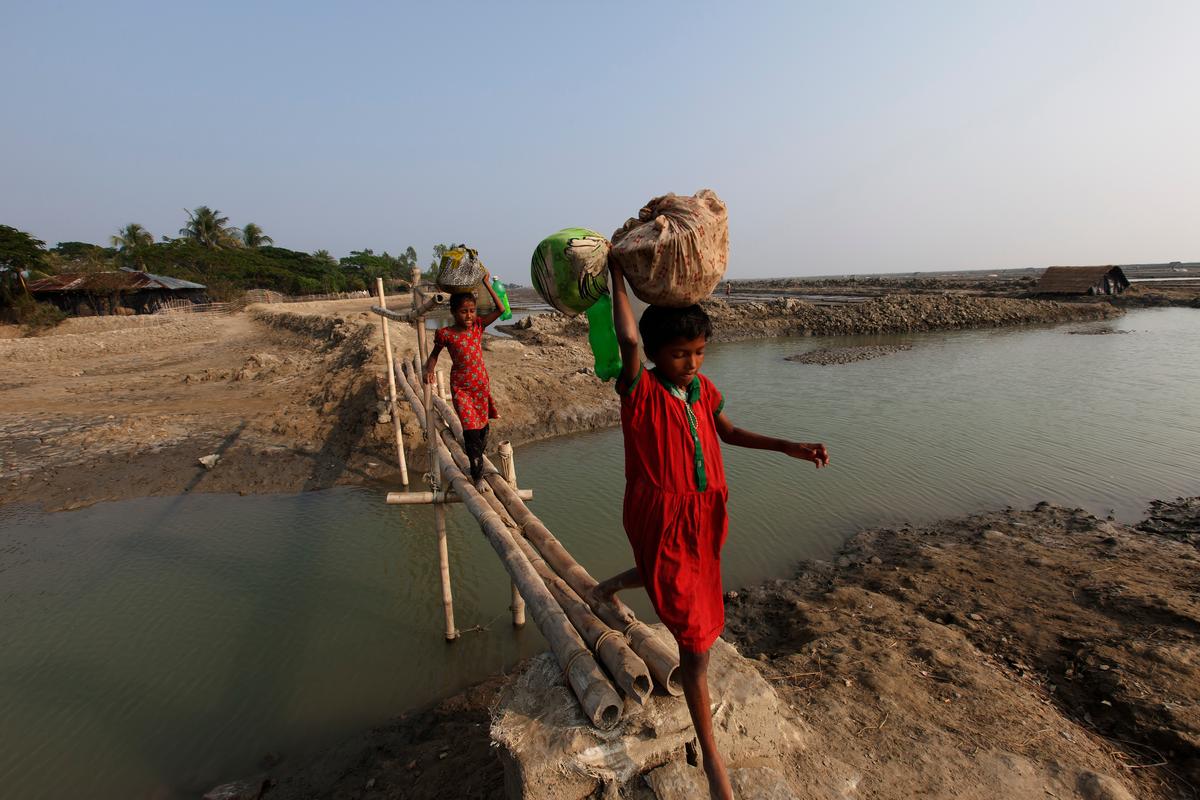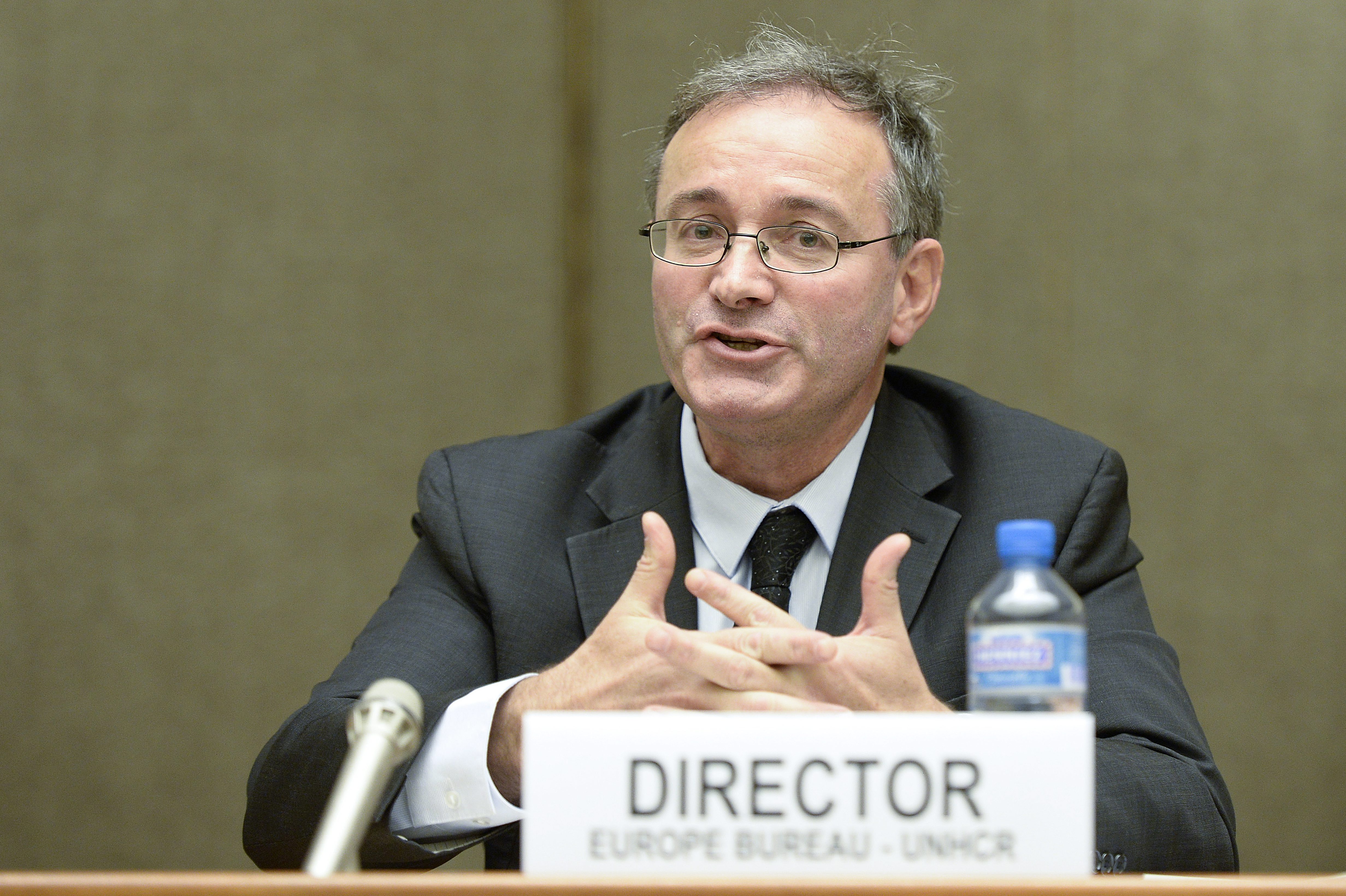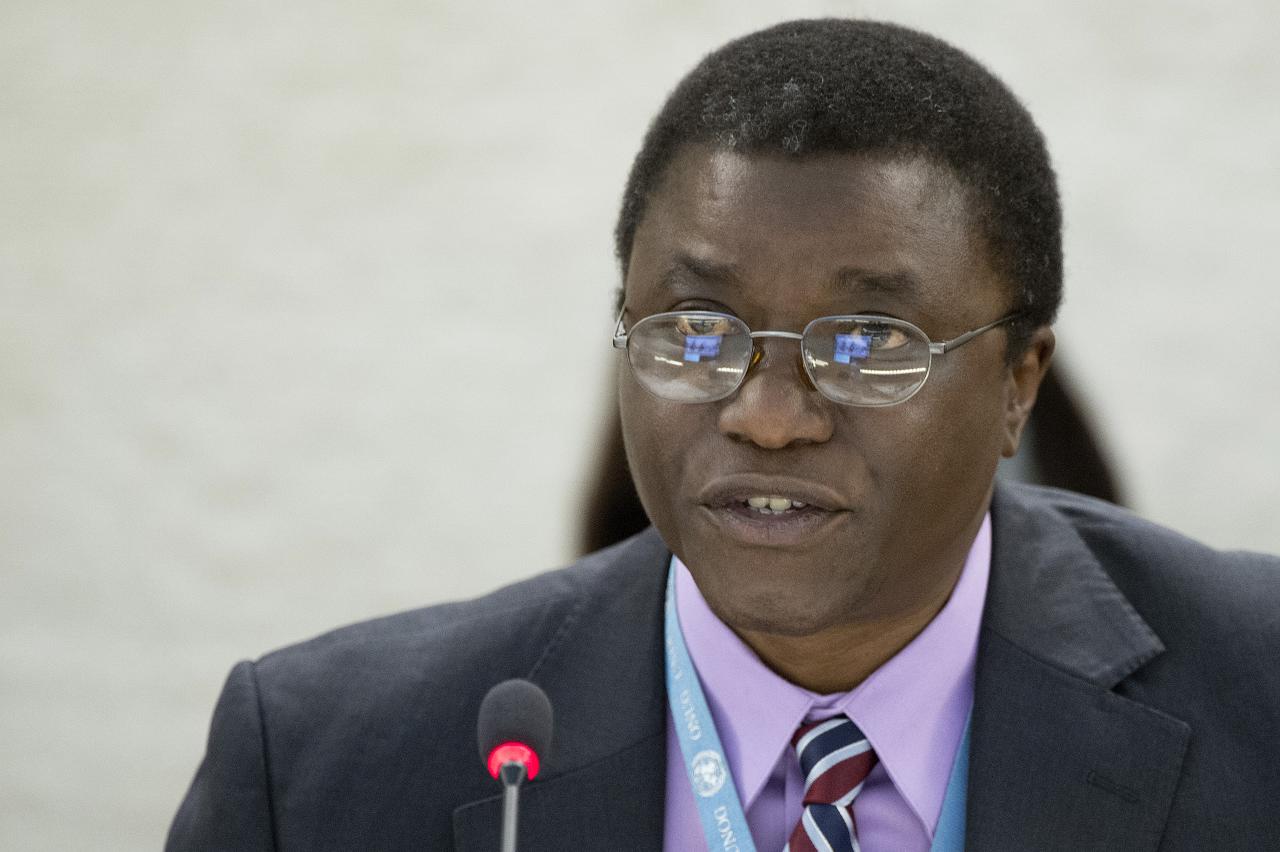Q&A: British pride as UNHCR flag flies at the North Pole
Q&A: British pride as UNHCR flag flies at the North Pole

GENEVA, May 11 (UNHCR) - Thousands of people have sailed around the world, hundreds have climbed Mount Everest, but only a few have walked or skied to the North Magnetic Pole. They include 31-year-old former UNHCR staffer Jake Morland and his friend, teacher James Turner. Organizers confirmed earlier this week that the pair had edged out five other teams to win the Polar Race 2007, taking just under 15 days to complete the hazardous trip from Canada's northernmost settlement, Resolute. Morland responded to questions about the trip sent to him in Canada by Web Editor Leo Dobbs. Excerpts:
Tell us about your involvement with UNHCR
I started working for UNHCR as an intern producing the Consolidated Situation Reports during the Kosovo Emergency, not a job I relished but thankfully quickly followed by a UNV [UN Volunteer] position as external relations officer in West Timor. I was 23. Following the murder [in September 2000] of three dear friends in Atambua, I was reassigned to East Timor where I remained until shortly after the country's independence two years later. Despite the obvious traumas of UNHCR's time in Timor, I loved the challenge and feel it was a successful operation. I left Dili for a one-man mission to Darién, Panama and then went on to work in the Iraq and Darfur operations. Then, just as I was planning to leave UNHCR to complete a masters, the Indian Ocean tsunami hit [on December 26, 2004] and I was sent to Sri Lanka as head of Batticaloa field office, a position which reinforced my commitment to UNHCR and its work. Since then, I have been preparing for the 2007 Polar Race as an ex-UNHCR staff member.
What made you decide to do the Polar race?
I spent all my 20s working for UNHCR and wanted to try and do something for refugees outside the boundaries of my terms of reference at the time, so I resigned and ... [later] signed up for the Polar Race. We named ourselves Team Refuge and decided to use the race to raise £250,000 (US$495,000) for UNHCR as well as awareness [about refugees] during a round of lectures in the UK and Canada. We were very lucky to have been sponsored the £40,000 pound entrance fee by Arch Insurance (Europe).
How did you and James go about preparing for the race?
Neither of us had any Arctic experience so we had to learn everything, not to mention prepare our bodies for the 400-mile (644-kilometre) walk/ski through one of Earth's most inhospitable terrains. Almost every weekend was spent training - dragging tyres across fields; learning the dos and donts of polar bear encounters; learning how to melt frozen sea water to drink - and the rest of our days were spent courting the press and doing the endless rounds of asking for donations. I soon realised it was a job in itself, albeit a voluntary one.
What was the most difficult thing about the race?
There were so many difficult things. It fast becomes clear when travelling through that extreme area that the business of simply staying alive is a tricky one. Knowing that you and your teammate are all there is to depend on is quite an eye-opener. We trusted each other with our lives, as simple as that. Every little decision, from what to wear to looking over your shoulder for polar bears or from managing fuel to simply going north in a white-out, can mean the difference between life and death. Our lives became so routine, so simple and yet the consequences of everything we did was so terrifyingly important.
Did you see any polar bears or other wildlife?
We were told the chance of an encounter with polar bears - the world's largest land predators - was low. Two days into the race, the organizers were stunned - as were James and I - when a pair of male bears stalked, approached, charged and attacked us. Luckily we were unhurt but a lot of our equipment was badly damaged, mainly my socks and our tent. The bears also broke our fuel tank so we spent the rest of our trip sleeping in fuel-soaked sleeping bags - horrible. We also saw some Arctic wolves, which followed us for a bit.
Did you ever think you might not finish?
Halfway through the race we lost our gun and tent due to a faulty rope and had to backtrack over three miles through an ice rubble field to find them. Had we not found them, and it was a miracle we did, we would have lost the race and been disqualified. Our biggest fear, not making it and letting down our sponsor and UNHCR, nearly became reality!
How was the rivalry between the teams?
We always knew the race was going to test our stamina and grit to the limit, but we never imagined we'd have to race right up to the end. We should have been prepared, bearing in mind the Polar Race is now dubbed the world's toughest race. James and I had a very simple tactic: no matter what happened, we had to win. If that meant waking up at 2am, then we would; if that meant walking for 24 hours without any sleep, then so be it. Once the other teams realised we were willing to go to whatever lengths, so long as within the rules and safe(ish), I think they realised UNHCR's Team Refuge was almost impossible to beat!
What were your feelings when you reached the Pole in pole position?
To be honest, we both felt just utter exhaustion on reaching the North Pole. We'd just walked and skied 400 miles, and on the last day alone covered 31 miles in 22 hours. Rather than screams of joy, James said: "Let's get the tent up, eat and then sleep," and I said, "Not long now before a pizza in Ottawa!" The next day, when our win was confirmed, we stood atop the North Pole and held a massive UNHCR flag between us - a moment in which we felt both proud, but daunted by the fund-raising challenge ahead. The North Pole is flat and barren so there is no feeling of reaching a summit like Everest.
How much money has been pledged and how much do you hope to raise?
So far we've reached £50,000, but we are determined to raise £250,000 or more. Our website received more than 80,000 hits during the race from 10,000 different sources. We hope this will have generated more online donations. I am especially keen that UNHCR colleagues will have visited our site and made a small donation.
We still have lots of tricks up our sleeves [for reaching the £250,000 target] and will now return to London and Toronto to begin following up our network of contacts to capitalize on the win. It is amazingly hard to raise this sort of money, which seems so silly when we see cars that cost more than the sum we need passing us on London's streets all the time. We will get there!
Did your experience with UNHCR prepare you for the rigours of the race?
In the field with UNHCR we often find ourselves charged with making decisions that impact on peoples' lives in a very real and raw sense. In the race, every step we took was calculated in order to minimalize the risk to ourselves and each other. I exercised the same caution I do when working with refugees in each of those steps and I trust James did too.
What will you do with the funds raised?
We want the money to be used to establish a trust fund for the urgent medical evacuation of refugee children and other vulnerable people. The details of this need to be discussed with UNHCR.
What next?
My hope is to rejoin UNHCR and get back to work in the field. I have missed the work enormously over the last couple of years and can think of nothing I would rather do than get back into the thick of it. Having said that, there is always the South Pole.









